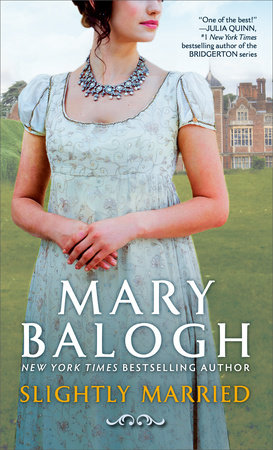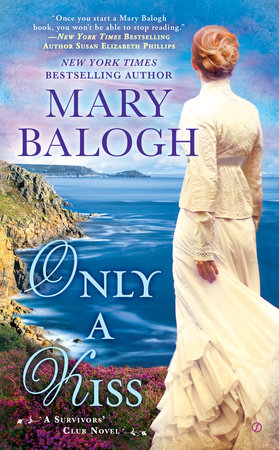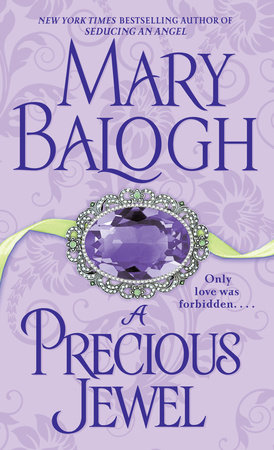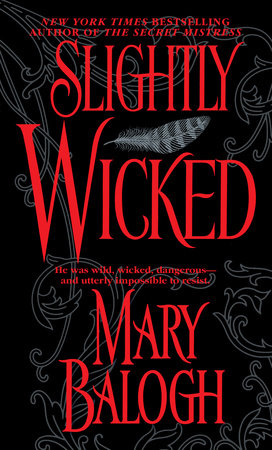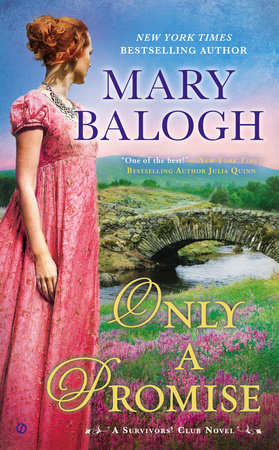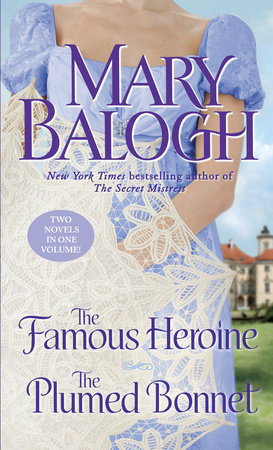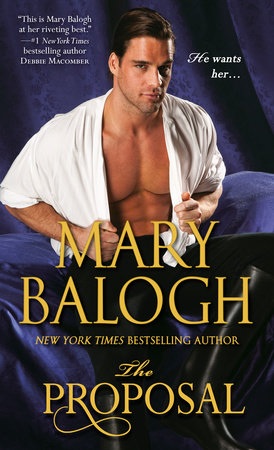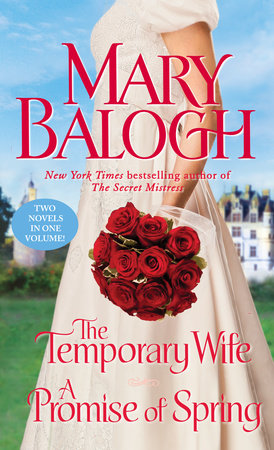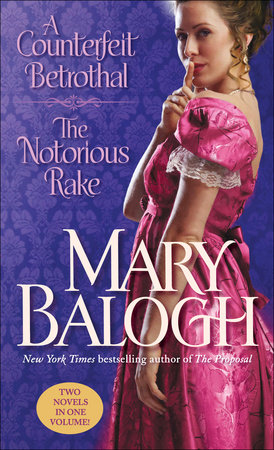Mary Balogh on Romance Writing
Romance authors are prolific writers. Knowing that there are so many romance books published each year, how do you keep your ideas fresh and avoid traveling over well-worn territory?
I read very little romance. One reason is that because I write romance all day I look for a different type of literature to fill my leisure hours. Another reason is that I want my ideas to be my own. I don’t want to pick up trends from other writers and I certainly do not want to unconsciously plagiarize from anyone else—and it is easy to do precisely because it is unconscious! As far as keeping my own writing fresh is concerned, it is a matter of constant attention. Sometimes I have a plot idea that seems great and fits the story well—and then I recall that I used the same idea four books ago. I try not to do the same thing over and over—and if I do reuse an idea (the fake betrothal, for example) I try to use it in quite different ways each time.
Many of you write with recurring characters in your stories. How do you keep track of what your characters have done to ensure that your storyline stays true?
I keep lists of characters and places and key descriptions. But on the whole I am a "head" person—I keep everything stored in my brain. If I am not sure of a detail, then I have to go rummaging through the previous books to check. But it is, of course, hugely important to keep the details consistent. My books Slightly Tempted and Slightly Sinful not only are related but also run concurrently. I had to get both plots and sets of characters to converge at a certain time and a certain place (the same scene occurs close to the end of both books). That meant keeping very detailed time lines for each book. I did not want one group arriving at the appointed place a whole month ahead of the other group! It was tricky—but then part of a writer’s job is to be able to pull off these things. It is part of the fascination of the job!
Do you visualize your characters as anyone in particular? A celebrity or a significant other?
No, never. My books are purely creations of the imagination. Though I do have a mental picture of my characters, it is not as anyone I know. I remember once grimacing when told by a reader that she pictured one of my heroes as an actor whom I disliked. But that of course is the privilege of the reader. We all see things differently with our different imaginations. How wonderful to work in a medium in which so much personal freedom is allowed both writer and reader—unlike film or television.
If you write historical romances, how do you do your research?
In great bulk at the start, reading both history and contemporary sources. But since most of my books have been set in the same historical period (the Regency), I am constantly adding to my knowledge. And there are two great e-mail loops of Regency fanatics to which I belong. What the people on those loops do not know about the Regency period is not worth knowing. Everyone is very willing to share expertise. I am British by upbringing. This is a huge advantage to a writer of historical fiction set in Britain. I have an intuitive feel for what people would do under certain circumstances or feel about various issues, and how they would speak. I spend a month there each year to soak up atmosphere.
Level with us—how easy or difficult is it to write a love scene?
I don’t really think of my books as romances. I think of them as love stories. They are emotional experiences, bringing together as they do two people who are quite separate entities to the point at which they commit their lives to each other in a deep love relationship. Sex is a crucial aspect of such a relationship, and so it is important to me not to leave the reader outside the bedroom door, so to speak, and thus remind her that she is not one of these characters but a reader holding a book. I love writing love scenes. I look forward to them. I never write them for titillation purposes. My love scenes are an integral part of the love story, the moments at which the passion of the growing relationship is at its most intense—either negatively or positively, showing what is wrong with the relationship or what is right. Love scenes are as much as emotional experience as a physical—perhaps more so.
Which do you think readers prefer, the more erotic/graphic romance or the old-fashioned romance that leaves most everything to the imagination? Has this changed over the years?
I think there are a wide variety of tastes out there. Books have clearly become more graphic over the years. I do not know which type of book is the most popular. A survey of readers would have to be taken to get that answer. Very few of my readers have ever objected to the explicit nature of my love scenes—even when I was writing traditional Regencies. And no reader has ever asked for more sex in my books. So I suppose for my own readers the balance is just right.
In the publishing business, do you feel there is a stigma attached to romance novels and, by extension, romance authors? Are the subgenres that are being used to define novels today—romantic suspense, historical romance, romantic mystery—an attempt to eliminate any stigma attached to the romance genre?
In the publishing business itself? If there is, I have not felt it. I have always been in the romance program with editors of romance. The fellow-authors I tend to meet are romance authors. So I suppose I would not know what the overall house attitude is. I suppose in the reading world in general there is some stigma on romance—perhaps because it is primarily a woman’s genre and anything that is heavily feminine is still seen as intrinsically inferior and irrelevant to the "real" world. My answer is always that romance and happy marital love are as real as all the horror stories we watch on the news each evening. It is just that the emphasis, the perspective is different. And I far prefer my perspective!
What are some things that you think could help increase awareness and sales of romance books?
My main suggestion is already being implemented—though I don’t claim any credit! The sleazy covers that used to adorn our books so that male buyers would choose the books to go into their stores are gradually becoming a thing of the past. They almost never gave an accurate idea of the book within the covers. I wept over some of mine! Most romances now look like real books.
What do you love about your fans? Tell us about a memorable encounter with one of your readers while on tour, or via your website or email.
It would be strange indeed, I suppose, if I did not love them because they love my books! But in particular I love the way many readers become so immersed in the books that they treat the characters as if they are real people—and they discuss them as such in groups, sometimes quite heatedly. They hate to let the characters go at the end of a book—and even more so at the end of a series. If a book is part of a series, they speculate on what will happen in the future books. Many of them will beg for stories for some minor character they enjoyed. Many go out looking for my backlist, which is horribly out of print. Perhaps my most memorable encounter with a reader happened at a large convention. When she saw the name on my name tag, she threw both hands in the air, went down on both knees, and declared herself to be my number one fan. What was memorable about it was that she is a New York Times bestselling author—and at the time I was still writing the small Signet Regencies!
Have you ever written a book outside the genre?
No. I have written outside the Regency era, though not far outside it. I have written a few Georgians (18th century) a Victorian, and two Welsh books set in the 1830s (I grew up in Wales). But I have never wanted to write anything but romance.
What do you think is the future trend for romance novels?
Since I do not read much romance, I really have no idea here.
What are you working on now?
I have just left behind a six-part series of books about the Bedwyn family. I feel rather bereft. I have just started a quartet of books about four teachers at the same school in Bath. Two of these teachers appeared briefly in one of the Bedwyn books, so I am not completely out on a limb! The first book has no title yet, beyond Governess I. Since that is hardly a title to make a book fly off the shelves, it will eventually be renamed!
